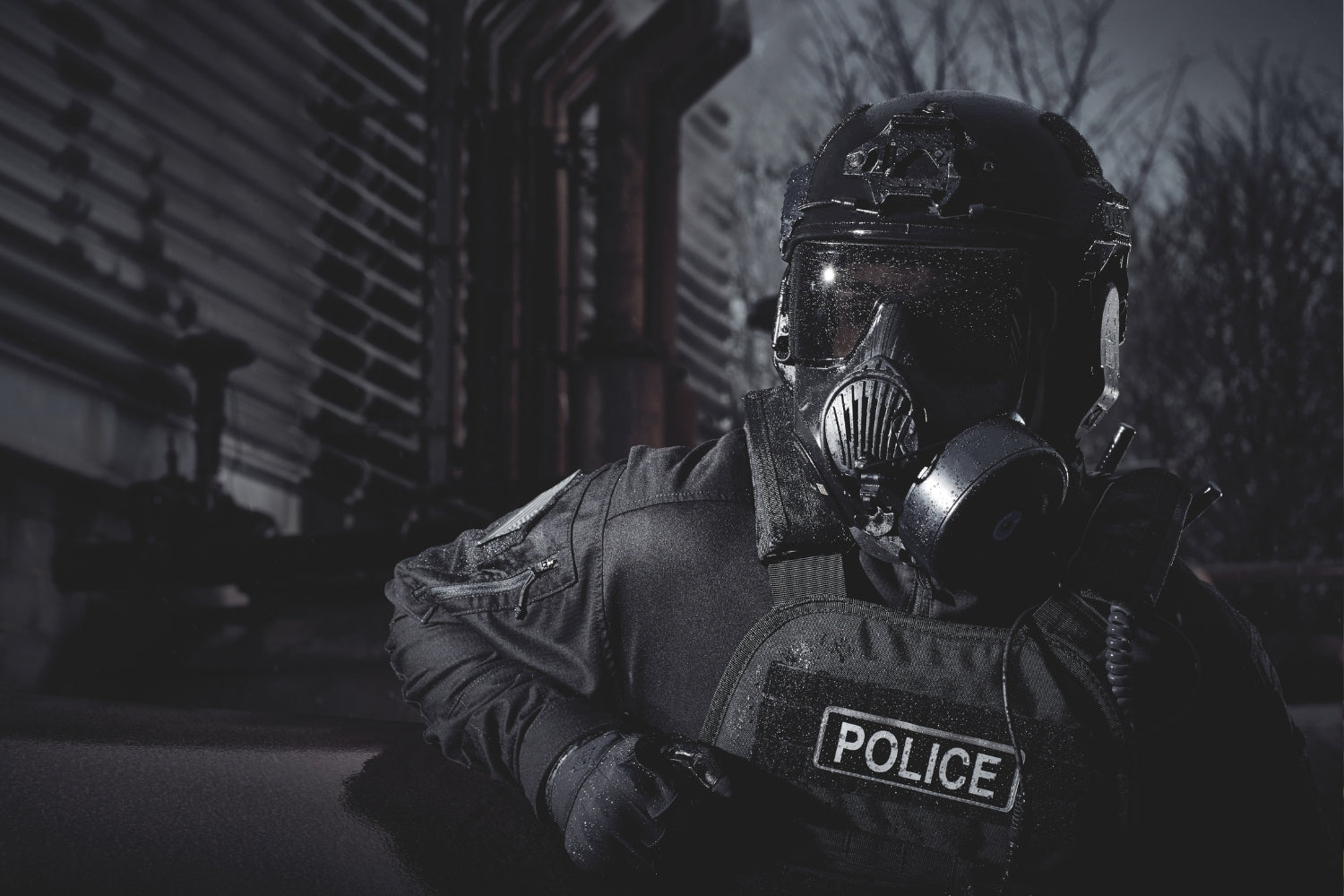Buying Respirators with Grant Funding: What Law Enforcement Agencies Need to Know

Respiratory protection shouldn’t be optional - it’s essential. Whether responding to hazardous materials, pandemics, or crowd control situations, law enforcement officers need reliable, certified respirators to mitigate exposure to airborne threats.
In certain applications, respirator use is mandated by OSHA, and with budget constraints an ongoing issue, using federal grant funding, is a way to ensure that compliant equipment can be accessed to protect first responders. However, when using grant funding, agencies must follow strict procurement rules to ensure compliance, safety, and eligibility for improved officer safety, operational readiness, and public health resilience.
Key Rules to Know
1. Use NIOSH-Approved Respirators
The National Institute for Occupational Safety and Health (NIOSH) sets the gold standard for respirator safety. Any respirator purchased with federal funds must be:
- NIOSH-certified under 42 CFR Part 84
- Listed in the NIOSH Certified Equipment List (CEL)
- Free from counterfeit or unapproved modifications
NIOSH’s Respirator Approval Program ensures that products meet rigorous safety and performance criteria. How can you easily identify NIOSH approved respirators? Read this CDC guidance.
This is often found on the mask itself or its packaging, like you can see on products from Avon Protection.
2. Follow Federal Procurement Standards
Agencies must adhere to Title 2 CFR Part 200 (Uniform Guidance), which governs how federal funds are spent. Key principles include:
- Agencies must be registered in SAM.gov and have a UEI (Unique Entity Identifier).
- Avoid sole-source contracts unless justified.
- Avoid conflict of interest.
- Agencies must follow their own policies that align with federal rules.
- Maintain records for audits and monitoring.
For health-related grants, agencies may also need to comply with HHS regulations at 45 CFR Part 92, which outline procurement standards for state and local governments.
3. Competitive Bidding Is Required
Unless an exception applies, agencies must:
- Solicit bids from multiple vendors.
- Use clear and objective criteria for selection.
- Avoid “piggybacking” on unrelated contracts unless explicitly allowed.
The EPA and other federal agencies emphasize that competitive procurement is required for equipment purchases under grant agreements.
4. Budget and Justify Every Expense
Grant proposals and post-award documentation must include:
• Detailed cost breakdowns for each respirator type.
• Justification for quantities and models selected.
• Training and maintenance costs, if applicable.
Additional Considerations
During procurement you should do your research to ensure the product selection appropriate for the operational needs (e.g., crowd control, pandemic response, hazardous materials).
And finally, federal grants these days often require a sustainability plan. This can considerations such as establishing a replacement schedule, budgeting for additional requirements, training staff on proper use and care.
Final Thoughts
Buying respirators with grant funding isn’t just about placing an order, it’s about protecting your officers while respecting taxpayer dollars. By following federal procurement rules, choosing NIOSH-approved gear, and documenting every step, your agency can stay compliant, and first responders are ready for whatever comes next.
With years of experience and support for Law Enforcement agencies, Avon Protection is available to help you navigate the Grants process. If you'd like to reach out, please contact your Avon Protection Sales Representative or contact Customer Service.
Other Useful Resources:
• Office of Justice Programs (OJP) - Offers a wide range of criminal justice grants.
• COPS Office - Focuses on community policing and officer wellness.
• Department of Homeland Security - Provides grants for terrorism prevention, cybersecurity, and emergency response.
• Grants.gov - Central portal for federal grant applications.
• JustGrants - DOJ’s grant management system for law enforcement-related funding.
• State Criminal Justice Agencies - For state-administered federal funds.
• Private Foundations - Direct outreach or online portals (e.g. corporate or community foundations)













